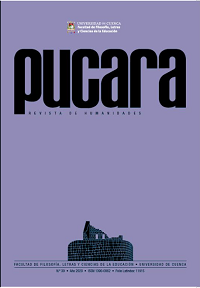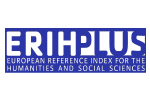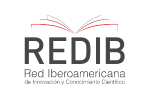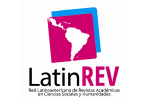Strengthening the Human Condition: The Task of The Humanities in Higher Education
DOI:
https://doi.org/10.18537/puc.30.01.01Keywords:
Higher Education, humanities, human condition, personhood, ecstatic education.Abstract
If one reviews the history of education, it can be established that pedagogical propositions emerge from the evolutionary process of societies which demand more educational solutions for the training and actioning of citizens. Currently, there are concerning discourses and practices that attempt to displace the humanities from the university’s curricular offer. Based on arguments such as the low employability of students after college and the need to answer to the demands of a labor market that is ever more competitive, these debates focus on the humanities’ actual usefulness and they push for the elimination of a humanistic training from college campuses. This article proposes that, on the contrary, given the current state of affairs, a training in the humanities is essential because this indifferent, self-referential, superficial, and unmediated society can only be restored through genuine and responsible professional futures that are competitive and informed, with attitude and ability, and that can foster a collective human elevated consciousness.
Downloads
References
Blecua, J. M. (1999). La enseñanza de las humanidades. Madrid: Santillana.
Bullock, A. (1989). La tradición humanista en Occidente. Madrid: Alianza.
Cervantes, M. (2004). El ingenioso hidalgo Don Quijote de la Mancha. Madrid: Santillana.
Cifuentes Medina, J. E. (2014). El papel de las humanidades en la educación superior en el siglo XXI. Revista Quaestiones Disputatae. Temas de debate, 15, 101-112.
Contreras, C. A. (1999) Concepto de las humanidades. Disponible en https://studylib.es/ doc/270354/concepto-de-lashumanidades---un-virtual
Cordua, C. (2012). La crisis de las humanidades. Revista de Filosofía, 68, 7-9. Disponible en http://dx.doi.org/10.4067/S0718-43602012000100002
Cots, V. M. (2006). Crisis de las humanidades, crisis del canon. Mil Seiscientos Dieciséis. Anuario, 11, 253-260.
Culler, J. (1988). El futuro de las humanidades. En El canon literario (139-160). Madrid: Arco / Libros.
Díaz Villarreal, W. (2015). Las humanidades, la universidad y la era de la excelencia académica. Literatura: Teoría, Historia, Crítica. 17(2), 19-38. Disponible en http://dx.doi.org/10.15446/lthc.v17n2.51270.
Grassi, E. (1999). La filosofía del Humanismo. Preeminencia de la palabra. Barcelona: Anthropos.
Guerra, Y. M. (2008) ¿Las humanidades en crisis o la crisis de la humanidad? Revista Educación y desarrollo social, 2(2), 135-142. Disponible en https://doi.org/ 10.18359/reds.828
Giménez A. & Gómez, M. I. (2005). Pedagogos cristianos. Loja: UTPL.
Ibáñez-Martín, J. A. (1995). Hacia una formación humanística. Objetivos de la educación en la sociedad científico-técnica. Barcelona:
Herder.
Jocelyn, H. D. (1973) Homo sum: humani nil a me alienum puto (Terence, Heauton timorumenos 77) Antichthon 7, 14-46.
Lacilla, M. F. (2018). La libertad y su educación desde la perspectiva de Fernando Rielo. En Proceedings Sixth World Conference on Metaphysics (209-220). Madrid: Fundación Fernando Rielo.
López, J.M. (1985). El Modelo pedagógico. Boletín Idente. 12
Mollis, M. (Comp.) (2003). Las universidades en América Latina: ¿reformadas o alteradas? La cosmética del poder financiero. Buenos Aires: CLACSO.
Nussbaum, M. (2005). El cultivo de la humanidad: una defensa clásica de la reforma en la educación liberal. Juana Pailaya, (trad.).
Barcelona: Paidós.
Rielo, F. (2001a). Filosofía sicoética. En Mis meditaciones desde el modelo genético (121-142). Madrid: Fundación Fernando Rielo.
Rielo, F. (2001b). Función de la fe en la educación para la paz. En Educardesde y para la paz (97-119). Madrid: Fundación Fernando Rielo.
Rielo, F. (2002). Transfiguración. (2da ed.). Madrid: Fundación Fernando Rielo.
Savater, F. (1997). El valor de educar. Barcelona: Editorial Ariel Urrea
Published
How to Cite
Issue
Section
License
Copyright (c) 2019 Alexandra Catalina Astudillo Figueroa

This work is licensed under a Creative Commons Attribution-NonCommercial-ShareAlike 4.0 International License.
Copyright © Autors.

You are free to:
 |
Share — copy and redistribute the material in any medium or format |
 |
Adapt — remix, transform, and build upon the material for any purpose, even commercially. |
Under the following conditions:
 |
Attribution — You must give appropriate credit, provide a link to the licence, and indicate if changes were made. You may do so in any reasonable manner, but not in any way that suggests the licenser endorses you or your use. |
| NonCommercial — You may not use the material for commercial purposes. | |
| ShareAlike — If you remix, transform, or build upon the material, you must distribute your contributions under the same license as the original. |
| No additional restrictions — You may not apply legal terms or technological measures that legally restrict others from doing anything the licence permits. |












